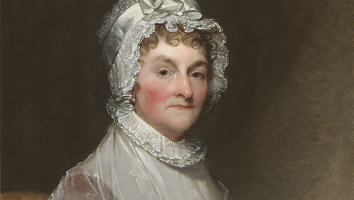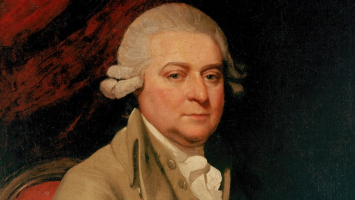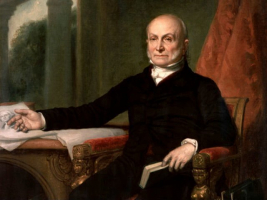Top 7 Interesting Facts about Samuel Adams
Samuel Adams is one of the most influential people in American history. He is considered one of the Founding Fathers of the United States. Let's discover some ... read more...interesting facts about Samuel Adams with Toplist!
-
The first position on the list of interesting facts about Samuel Adams is that he came from a prominent family. Adams was born to a wealthy Puritan family on September 27, 1722, in Boston. His father, Samuel Adams Sr., was a well-known local businessman, a church deacon, and a political activist. His mother, Mary Adams, was a local businessman's daughter.
John Adams, who would go on to become the second president of the United States, and Samuel Adams were second cousins, and the Adams family was a very politically engaged one in Boston. Samuel was the tenth kid out of a total of twelve, making the family quite large. Only two siblings, sadly, made it past childhood.
Following his time at Boston Latin School, Adams attended Harvard College. The teachings of John Locke, an Enlightenment philosopher who believed that all individuals were born with certain rights that could not be taken away and that governments exist by the consent of the people, were presented to Adams there. Adams was profoundly affected by the concept and used it as the basis for his 1743 Harvard master's thesis on the legitimacy of defying British rule.
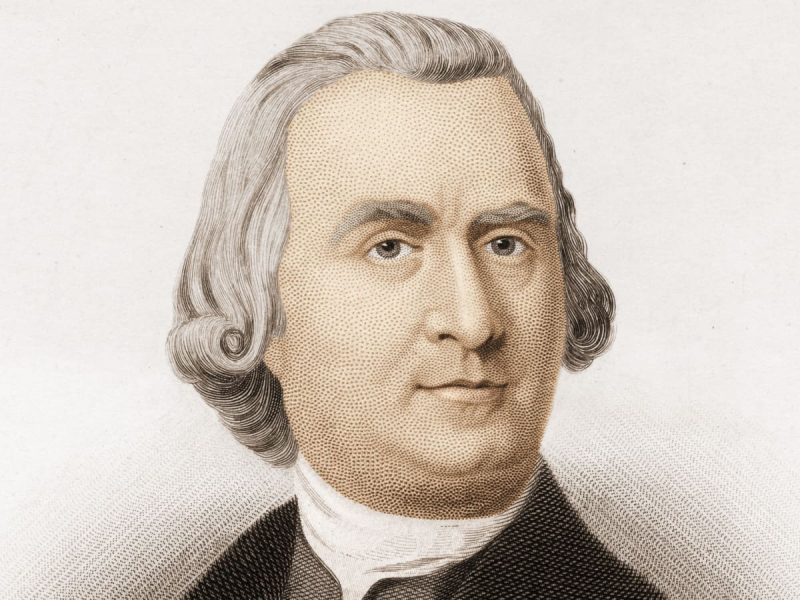
Photo: history.com 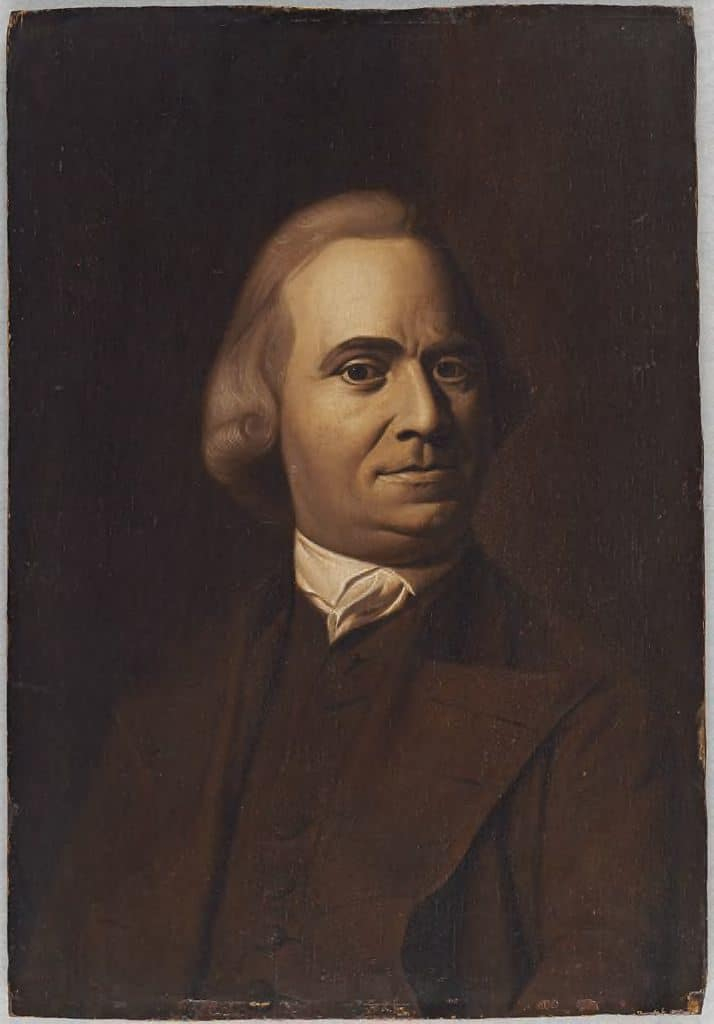
Photo: historycollection.com -
Adams studied Latin, philosophy, and law throughout his time at Harvard. His mother forbade him from becoming a lawyer because she did not want him to. The recent graduate chose to pursue an apprenticeship in commerce rather than law, but shortly realized he lacked the necessary commercial acumen and gave it up.
Adams started out in business. Samuel's father gave him a loan to help him launch his own firm, but he gave a friend half of it instead. He ran out of money quickly. He accepted a position with his father, although he wasn't particularly interested in running a business or making money.
Adams took over the family business of producing malted barley and selling it to brewers after his father passed away in 1748. According to a newspaper advertising from 1751 that advertised "strong beer, or malt for those who desire to brew it themselves; to be sold by Samuel Adams, at a reasonable fee," he may have also tried his hand at brewing. Adams, however, struggled to manage the company and ultimately declared bankruptcy. He had a similar lackluster performance as the city's tax collector, and his ledgers were hundreds of pounds short.
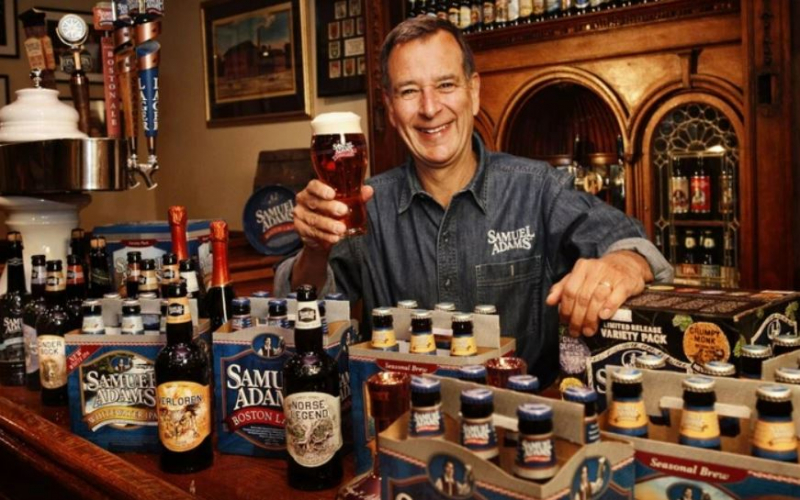
Photo: cafebiz.vn 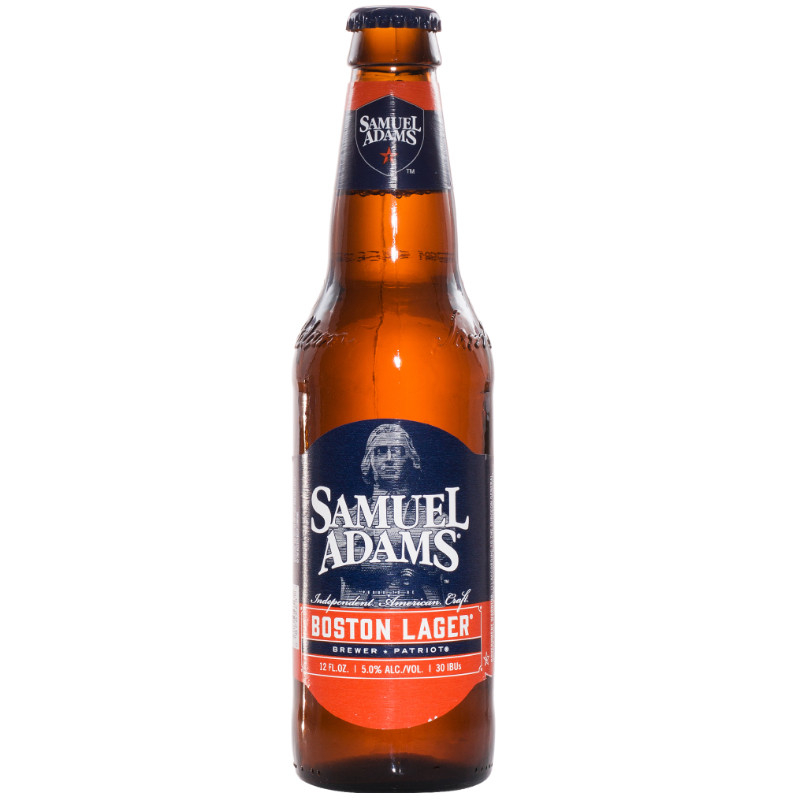
Photo: myamericanmarket.com -
Adams held a position as a tax collector from 1756 until 1764. Colonists found it more challenging to pay the bills when tax rates rose. Adams, a perpetual supporter of the underdog and a lousy businessman, made the decision to ignore the situation. Adams won the unwavering love of taxpayers by refusing to collect debts, even when the government was short on funds. The deficit was a tactic used by Adams' political foes to attack his credibility. In the end, his friends covered most of the difference, with the remaining amount being resolved at a town meeting. The unpaid obligations were determined to be inevitable, and Adams' reputation was mostly unharmed.
Adams was incensed that the king would tax the colonies without giving them representation in government when the British government implemented the Stamp Act of 1765. He started planning demonstrations in opposition to the king and the taxes. He organized the Sons of Liberty, a society of patriots.
The Sons of Liberty played a significant role in mobilizing Americans to fight the British. Early on, they hung a fake British tax agent as a sign of protest against the Stamp Act and threw rocks through the windows of the home of the tax collector. Additionally, they took part in the Boston Tea Party. Across all of the colonies, the Sons of Liberty movement gained ground. During the Revolutionary War, the organization in New York City was particularly powerful and employed violent demonstrations to intimidate supporters.
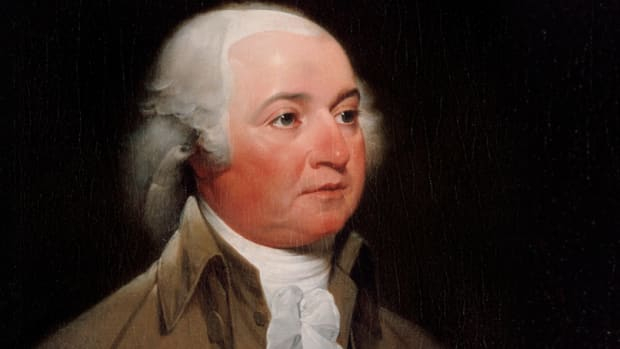
Photo: history.com 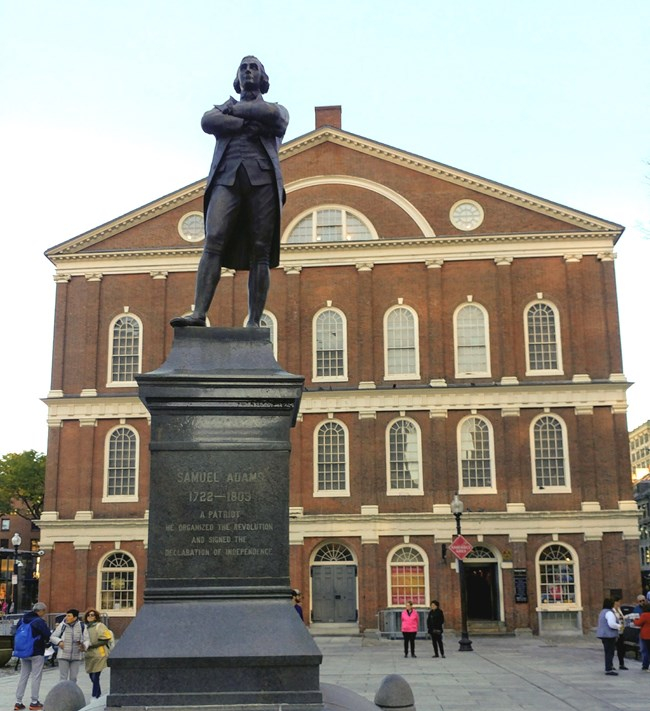
Photo: nps.gov -
The British government attempted to pay off debt from the Seven Year's War by putting increased taxes on the American colonies in the middle of the 1760s, which is when Adams' voice started to gain greater traction. Adams argued in print that the British were violating the colonists' rights since they were being taxed without representation in Parliament, while others just complained about the economic impact. The Stamp Act, a tax measure passed in 1765, was condemned by him as an effort "to crush the liberties of America as with one blow".
Adams won election to the Massachusetts House of Representatives in the same year, a position he would retain for nine years. He also became a member of the Loyal Nine at the same time, a clandestine group of activists that later became the Sons of Liberty, a more radical group.
Adams became more actively involved in planning resistance to the Crown after British troops arrived in Boston in 1768. Numerous newspaper pieces criticizing the British were written by him under false names. He also put pressure on Boston business owners to shun British products.
Adams returned to Boston after resigning from the Continental Congress in 1781, and he eventually entered state politics again. For a while, he held the positions of Massachusetts Senate President and Lieutenant Governor under Governor John Hancock, another erstwhile radical. Adams succeeded Hancock after he passed away while in office and went on to be re-elected for three one-year periods before stepping down.
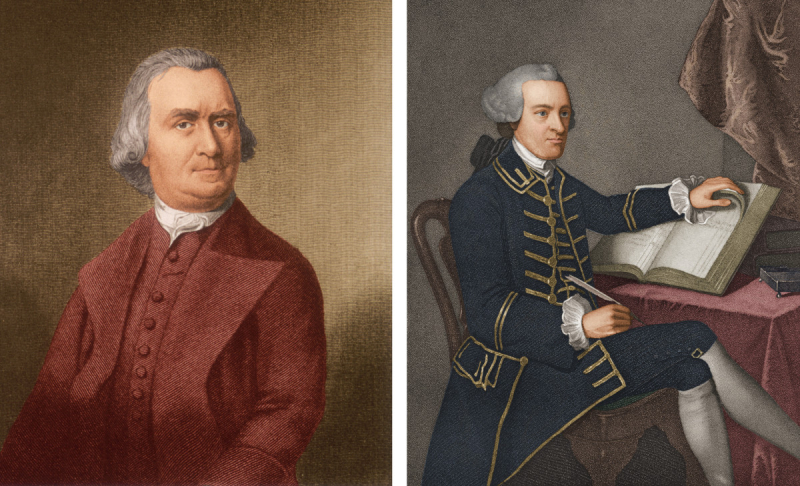
Photo: history.com 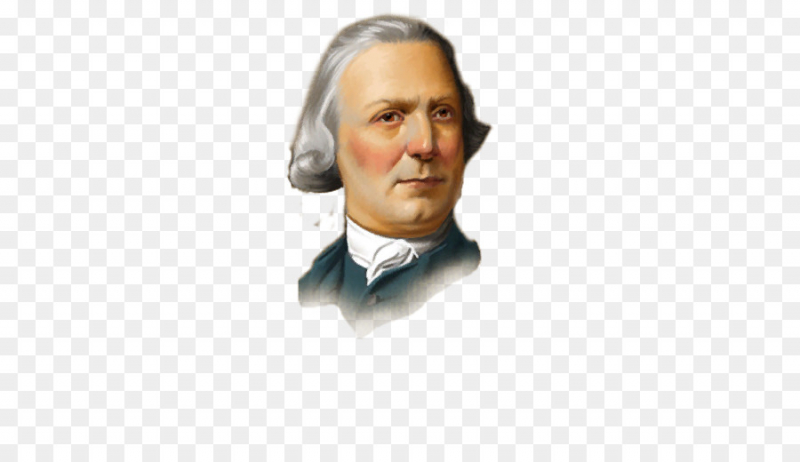
Photo: vi.cleanpng.com -
Adams assisted in organizing Bostonians to obstruct tea shipments after the British Parliament approved the Tea Act in 1773, which tried to force the colonists to purchase their tea from the British East India Company. In what became known as the Boston Tea Party, a small group of protesters went even further by dressed as Indian warriors and boarding numerous British ships to dump their tea. Adams, who may have helped organize the demonstration, later wrote that the demonstrators "had acted upon pure and upright principle."
The British government eventually had enough of Adams' agitation. A band of soldiers under the command of British General Thomas Gage traveled from Boston to Lexington in 1775 with the goal of apprehending John Hancock, another radical colonial, and Adams. However, as American spies learned of the scheme, militiamen from that country engaged the British on Lexington Common. The subsequent armed conflicts that started the Revolutionary War were the Battles of Lexington and Concord. This is one of the interesting facts about Samuel Adams.
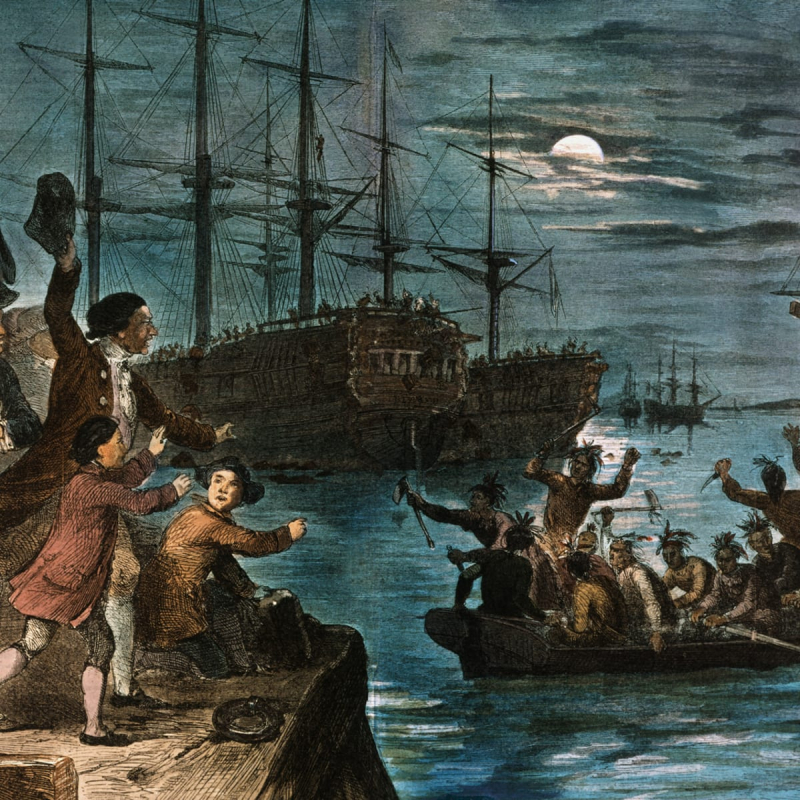
Photo: history.com 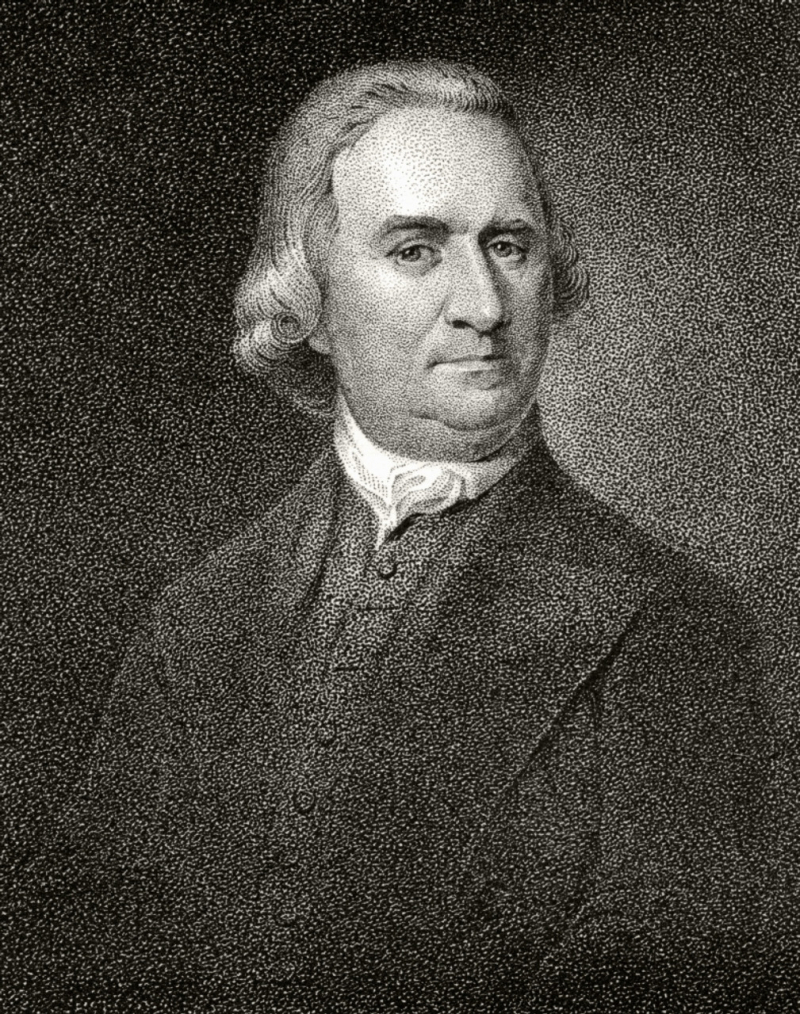
Photo: relatably.com -
A fight between the Redcoats and the colonists led to the Boston Massacre. A group of patriots attacked a loyalist's business, sparking the slaughter. In an attempt to disperse the gathering, customs officer Ebenezer Richardson fired his revolver from inside his home, but in the process, he murdered an eleven-year-old kid. The shooting caused other brawls to break out. Days later, colonists began to annoy the officer at the Customs House who was in charge of protecting the king's money. Soldiers arrived on the scene, and a shot was finally fired—it is unknown if this was an intended shot or not. Six colonists were hurt and five were slain in the ensuing struggle.
Adams spread misinformation regarding the incident. Information intended to alter public opinion is known as propaganda. The Boston Massacre was given its name by Adams and Paul Revere. He handed out posters, and after the massacre, boycotts become more intense.
Following the Boston Massacre, Adams and other town officials met with Colonel William Dalrymple, the army commander, and Thomas Hutchinson, Governor Bernard's successor, to request the evacuation of the troops. Since the situation was still volatile, Dalrymple consented to transfer both troops to Castle William. Adams desired a just outcome for the soldiers because it would demonstrate that Boston was not subject to an unjust occupation but rather was the victim of a disorderly crowd. Knowing that the Whigs would not defame Boston in order to secure an acquittal, he persuaded his cousins John Adams and Josiah Quincy to support the soldiers. Adams, however, published essays criticizing the verdicts in the cases; he believed that the troops deserved to have been found guilty of murder.
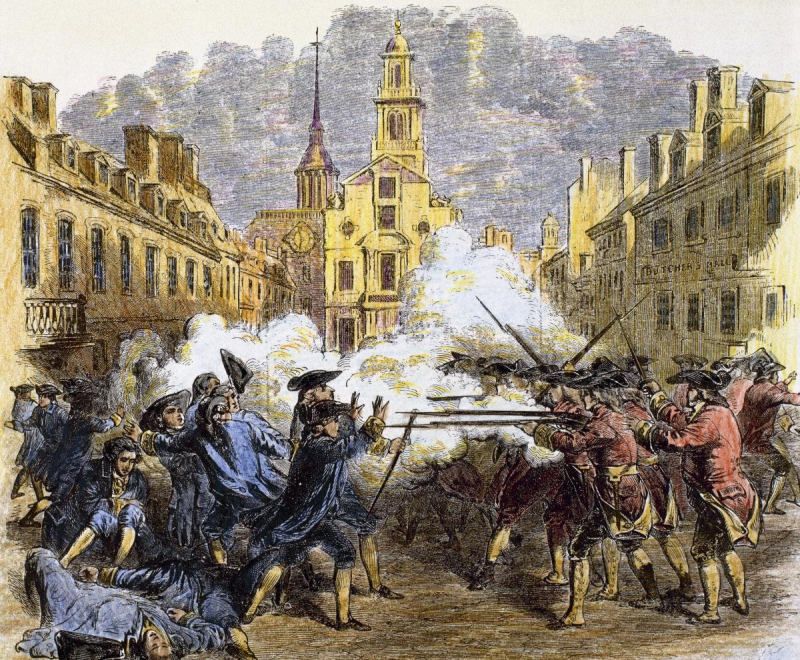
Photo: history.com 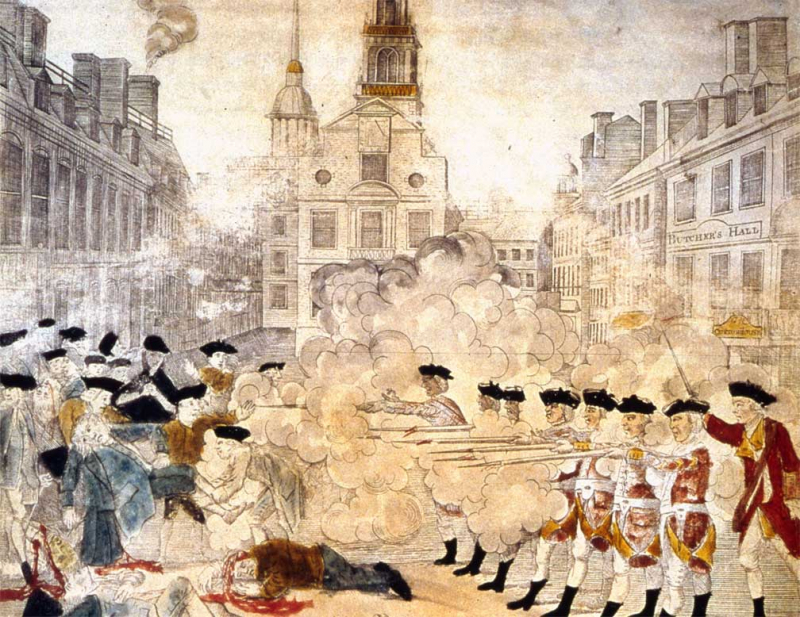
Photo: historycentral.com -
Deacon Adams and the Boston Caucus established a "land bank," which provided paper money to borrowers who pledged their land as security, in response to Massachusetts' severe cash shortage in 1739. The general populace as well as the popular party, which controlled the House of Representatives, the lower chamber of the General Court, were in favor of the land bank. The more aristocratic "court party", which dominated the Governor's Council, the General Court's upper chamber, and supported the royal governor Jonathan Belcher, opposed the land bank.
In 1741, the court party successfully lobbied the British Parliament to dissolve the land bank. Deacon Adams and other land bank directors fell under personal liability for the currency that was still in use and payable in silver and gold. Even after Deacon Adams' passing, lawsuits about the bank continued, and the younger Samuel Adams frequently had to fight to prevent the government from seizing the family land. These legal actions "acted as a continual personal reminder to Adams that Britain's power over the colonies may be exercised in arbitrary and damaging ways," according to Adams. This is one of the interesting facts about Samuel Adams.
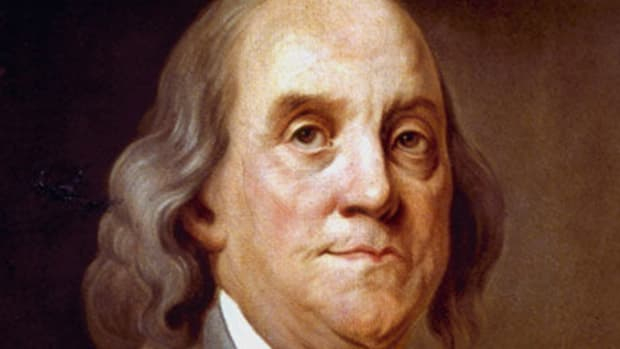
Photo: slideplayer.com 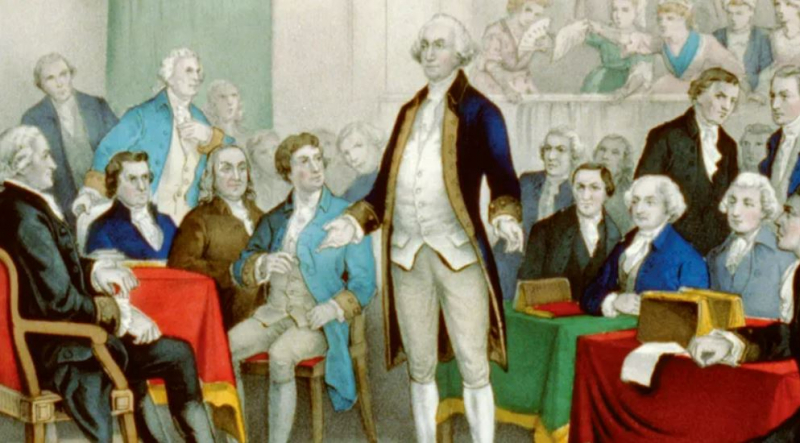
Photo: britanica.com









